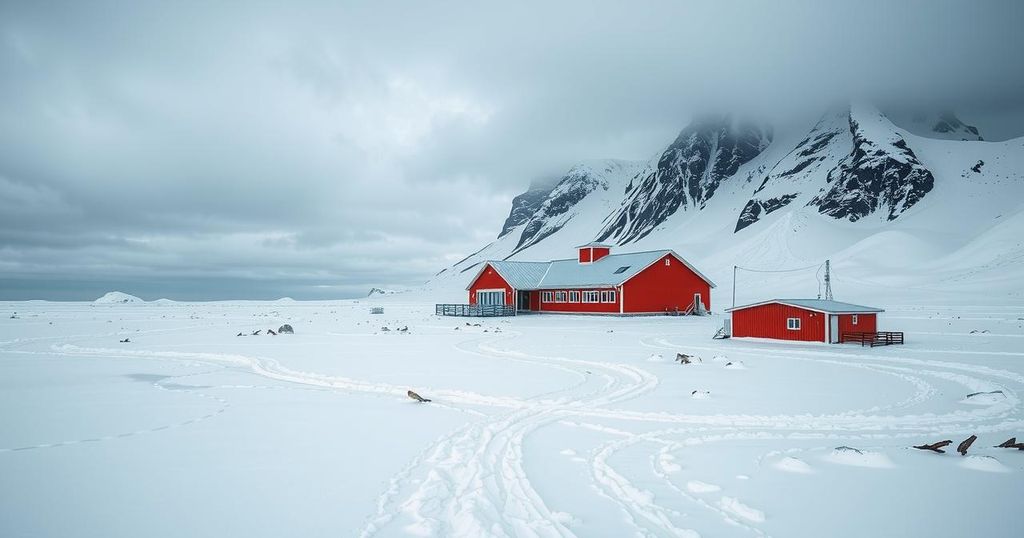Allegations of Assault at Antarctic Research Station Sanae IV Raise Concerns

The Sanae IV research station in Antarctica has been shaken by allegations of assault against a scientist from a team of approximately ten researchers. The South African government is addressing the situation with urgency after reports of disturbing behavior and an environment of fear emerged. The remote research base, operational since 1959, presents significant psychological challenges exacerbated by isolation. Rescue operations could be complicated by extreme weather conditions.
Recent events have stirred significant concern at the Antarctic research station Sanae IV, where a scientist has been accused of assault within a collaborative team of approximately ten researchers. The South African-run base, situated 170 kilometers from the ice shelf, is notoriously challenging to access. A spokesperson for the South African government confirmed to the BBC that an assault had indeed occurred, amidst prior allegations of inappropriate conduct at the base.
The South African environment ministry has indicated that it is addressing the situation with the highest priority, ensuring thorough evaluations, including background checks and medical assessments, were performed on all team members before their deployment. Conditions at the Sanae IV base are severe, rendering scientific personnel isolated for extended periods, thus complicating the circumstances surrounding their operations. The current team is scheduled to remain at the base until December.
Typically composed of a doctor, engineers, and technicians, the expedition team at Sanae IV has faced minimal issues throughout its history since 1959. However, on Sunday, alarming reports emerged from the Sunday Times, highlighting a teammate’s warning regarding “deeply disturbing behaviour” and an emerging “environment of fear.” The alleged assault reportedly stemmed from a disagreement concerning a weather-dependent task that necessitated scheduling changes.
Although incidents in Antarctica are uncommon, they have occurred in the past. Experts like Craig Jackson, a psychologist, note that isolation can intensify human behavior, leading to conflicts over seemingly trivial matters. Gabrielle Walker, a scientist with Antarctic expedition experience, corroborates this, reflecting on how close proximity to colleagues can enhance irritability due to a lack of external stimuli.
While sources indicate that South Africa possesses an ice-capable ship and aircraft for rescue operations, such endeavors would inevitably face challenges posed by extreme cold and severe winds in the Antarctic region.
This incident sheds light on the complexities and mental health challenges faced by scientific teams working in high-pressure, isolated environments, reinforcing the need for ongoing support and careful management of interpersonal dynamics in such daunting settings.
The situation at the Sanae IV research station highlights the psychological challenges faced by isolated teams in extreme environments. Allegations of assault and fears within the group reveal how confinement can exacerbate tensions. While rescue operations are feasible, the harsh Antarctic conditions complicate any intervention. This incident underscores the importance of thorough assessments and support for researchers in isolated locations, as well as the potential for conflict in close quarters.
Original Source: www.bbc.com






